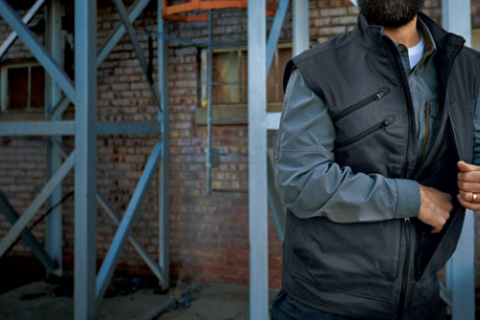
The Responsible Approach to Personal Protection
It is important for anyone who is considering carrying a concealed firearm to know the laws and regulations related to the concealed carry of a firearm in his or her home state, states they might be traveling to or through, as well as applicable federal laws.
Our nation is a “patchwork quilt” of gun laws, a legal quagmire. Each state in our nation sets its own rules and regulations regarding concealed carry and firearms, and they can vary drastically. Additionally, the federal government makes laws that apply inside states regardless of state law and which affect where you can legally carry your gun. To further complicate the issue, not all states recognize the validity of concealed-carry permits issued by other states.
I carry a concealed gun because the world can be a dangerous place. Even in areas with low crime rates, crimes still occur. I carry concealed because I want the ability to protect the people around me I care about. I want the ability to protect myself from people with evil intentions who are bigger, stronger and faster than I am. I carry every day with the hope that I’m wasting my effort and that I won’t need to use the gun. It’s a little like buying a fire extinguisher. You buy it hoping you never need it, but recognize that not having it could cost you and your family everything.
Concealed Carry has Multiple Advantages Over Open Carry
When you conceal a firearm, you take the target off your back and gain the tactical element of surprise. Concealing a firearm correctly means nobody knows you have it, good guys or bad guys, and you blend into the general population. It’s hard for a bad guy to take your gun if he doesn’t know it exists.
Additional firearms training is an excellent idea regardless of your previous training and experience. Laws change, tactics change, techniques change and technology changes. Don’t be caught in the “I’m an expert and know everything” trap.
You need to be familiar with how your gun works because in a critical moment, tenths of seconds count, and not being sure if it’s loaded or if the safety is on or off could cost you your life. You should also regularly spend some quality time at the range training for accuracy and speed with your self-defense weapon.
Getting an attorney’s perspective on your state’s self-defense laws could be invaluable. Most states have legal requirements you must meet to justify self-defense or use of a firearm. If you don’t know
the laws and legal requirements, a gun might get you in a lot of trouble quickly.
Quality Handgun is an Important Aspect of Carrying Concealed
Your gun must be reliable and work all the time. I prefer semi-automatic handguns manufactured by reputable companies with a long history of quality and reliability. The FBI and other government agencies often do extensive testing before issuing firearms to agents and are a good resource for choosing a firearm. The top of my list would include Smith & Wesson, Glock and Springfield Armory.
There is no reason to reinvent the wheel. Stick with what works and with gun companies that stand behind their products and will be in business three years from now. The gun I personally carry concealed more than any other firearm is the Smith & Wesson M&P Shield in 9mm.
Holsters are an essential part of carrying concealed, but are based somewhat on personal preference for what’s comfortable to the individual. Often, work or dress requirements will dictate how you must carry.

An inside-the-waistband (IWB) holster, worn at 3 to 4 o’clock, or just behind the hip, is my personal preference. I also regularly carry “appendix” (IWB holster inside the pants, but in the front at around 1 o’clock), and sometimes carry with an ankle holster.
Tip: Concealed carry your small or medium semiautomatic handgun or revolver with Triple K's Insider IWB Holster. Full-grain leather construction with a metal clip for inside-pants carry.
I often carry in my vehicle and don’t necessarily keep the gun on my body. Storing the gun in the door pocket, glovebox, center console or under the seat can all work effectively. You want to make sure you can access the gun swiftly, should you need it. The disadvantage of not having the gun on your body is that others might more easily access your firearm, and you might not access it as quickly. You should weigh the pros and cons of your specific situation.
When choosing a caliber, remember that only hits count and that recoil makes people miss. Don’t buy a bigger caliber than you can shoot well. The smaller the gun’s size in any given caliber, the more it will recoil. Keep this in mind when choosing a gun and caliber to conceal. The majority of people carrying would probably be best served with a good 9mm or .380. The FBI currently is switching all its agents to 9mms.
Having a firearm with you might save your life or the life of someone you care about. Buying a gun that’s too big, or that you’re uncomfortable with, will likely result in you not carrying it, which ultimately means you won’t have it if the critical moment happens.
It can be a dangerous world. Be smart, be knowledgeable, train and stay safe.
by: True Pearce
- 3871 views

